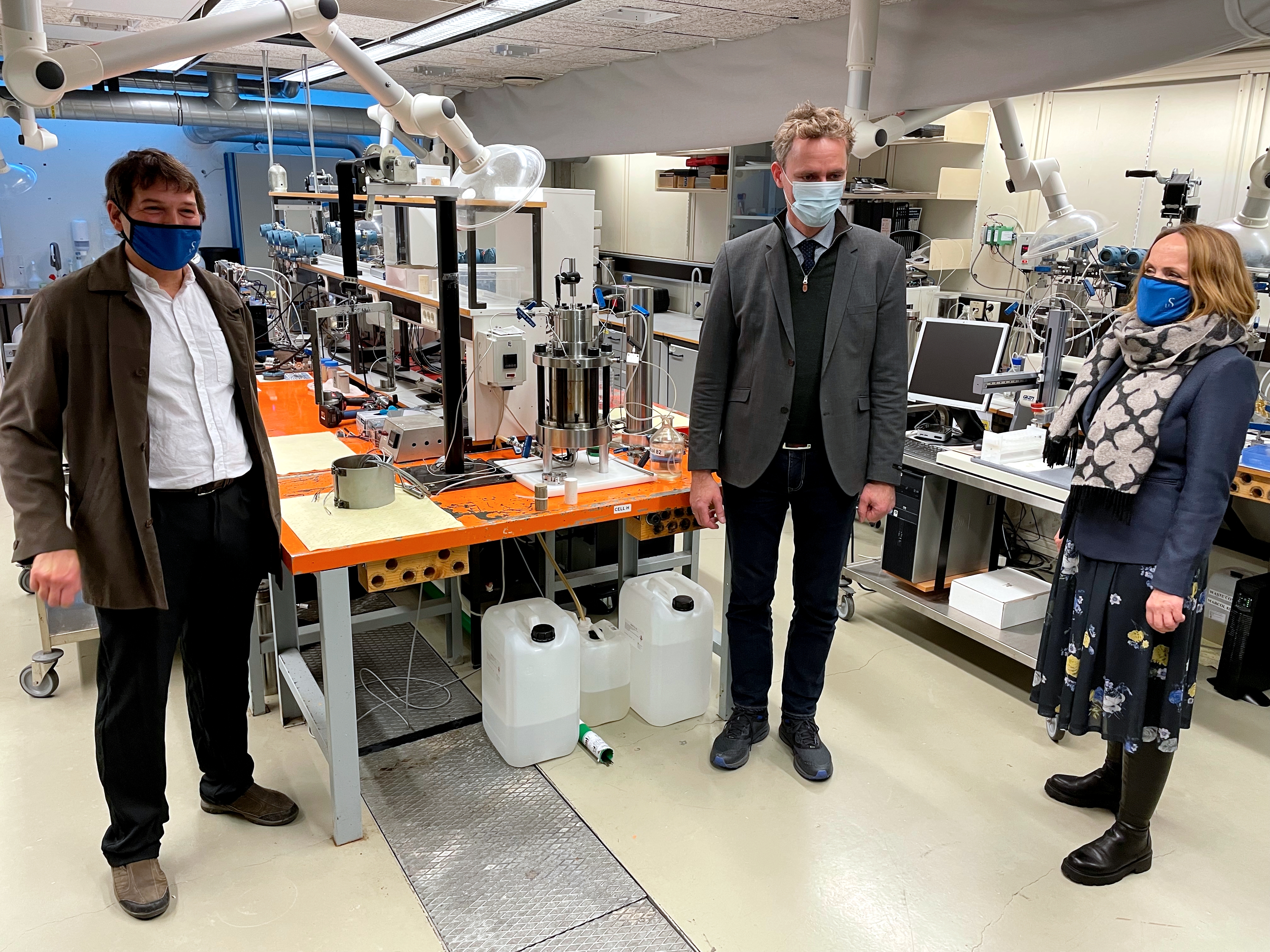University of Stavanger with partners have been awarded the National Centre for Sustainable Utilization of Energy Resources on the Norwegian Shelf (NCS2030).

Together with NORCE, Institute for Energy Technology (IFE) and University of Bergen (UiB), UiS will find solutions that maximize the value creation of energy resources on the Norwegian continental shelf, while at the same time achieving the net zero emission (NZE) goals.
"In this new centre, we have set ourselves ambitious goals: We will contribute to a sustainable transformation of the Norwegian continental shelf," says pro-rector for research at UiS, Merete Vadla Madland.
NCS2030 will not only benefit the oil and gas industry, but also other industries that will develop energy with a reduced carbon footprint.
The centre will provide new knowledge about areas in the subsurface, both in terms of extraction of new resources and how the shelf can be utilized in the transition to renewable energy and storage of CO2 from the use of fossil energy sources.
Long list of partners
UiS is the host institution in the research centre. In addition to NORCE, IFE and UiB, NCS2030 will collaborate with two other Norwegian universities (UiT and UiO) and 13 international academic institutions, as well as the Norwegian Research School in Petroleum.
The centre includes seven major operators on the Norwegian shelf, two major technology suppliers, as well as eight innovation companies that will ensure high relevance and societal benefits.
Holistic approach
The activities will span four research areas: energy systems, net-zero emission production, digitalization and society.
"The centre will work for a holistic approach to energy-efficient use of the subsurface on the Norwegian shelf. The goal is to create a sustainable value chain from start to finish. The subsurface contains the energy we need now, but we can also store energy for future generations," says Professor Alejandro Escalona, who will lead the new centre.
Objectives
NCS2030 shall:
- Build integrated near field subsurface holistic models for increasing reserve base and evaluate the potential of geological CO2 and H2 storage;
- Develop new IOR solutions for improved and accelerated HC production at low environmental footprint;
- Develop data-driven and ML approaches to integrate subsurface characterization, uncertainty quantification and management workflows;
- Recommend field cases with high potential for NZE production;
- Create awareness and acceptance of NCS2030 activities;
- Establish an innovation platform for technology development with industry;
- Attract and train future scientists and skilled professionals for the energy transition and disseminate results
Collaboration and innovation
NCS2030 will enable collaboration between policy makers, field operators, technology providers and academic groups. Furthermore, it will complement, and benefit established research initiatives and networks to create new solutions through a dedicated innovation program.
The centre will receive financial support of NOK 80 million over eight years from the Norwegian Research Council. It will also receive funding from the industry partners. Planned start-up is spring 2022.
Good news from Borten Moe
NCS2030 was awarded by the Research Council of Norway after a national competition, and Minister of Research and Higher Education Ola Borten Moe announced the centre at UiS on 10 December. The same man was also minister eight years ago, when UiS was awarded the The National IOR Centre of Norway.
"This is not money that falls into your heads without effort. The award is a recognition of what you have already achieved, and what we think you can achieve in the future," said Borten Moe when he shared the news during his visit to UiS and the IOR centre.
Regjeringen.no: 160 million for new research centres for petroleum in Bergen and Stavanger.
Text: Kjersti Riiber and Leiv Gunnar Lie